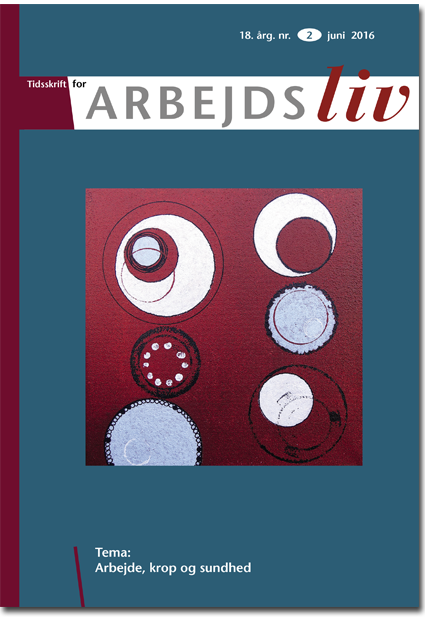The daycare personnel’s interpretations of the purpose and content of daycare institutions
DOI:
https://doi.org/10.7146/tfa.v18i2.110868Abstract
The article explores how daycare personnel assign meaning to their work. The analysis is based on a case study from two daycare centers in the municipality of Copenhagen in Denmark, and theoretically the analysis is inspired by Karl E. Weick’s sensemaking perspective and a job crafting perspective. The article identifies two dominant meaning constructions in relation to the societal contribution of daycare, the meaning assigned to their different work tasks and the perception of pedagogical compe tence. In the first meaning construction, work is framed as a substitute for parental love and care, while work in the second meaning construction is framed as con tributing to the children’s learning and de velopment. At the same time, the analysis focuses on how these two dominant mean ing constructions effect the personnel’s per ception of changes in their job – especially how they assign meaning to a state imple mented work tool called learning plans. One of the main points of the article is that even though daycare personnel assign different meaning to their work, to a great extent they highlight the same activities as important. For example eating lunch to gether is highlighted as an important activity, but it is framed in a different manner – as a cozy activity or as a learning activity. Another important point is that employees assign meaning to new work tasks based on their existing perceptions of the meaning of work, resulting in different perceptions of the relevance of the learning plans.
Downloads
Published
How to Cite
Issue
Section
License
Forfattere, der publicerer deres værker via dette tidsskrift, accepterer følgende vilkår:
- Forfattere bevarer deres ophavsret og giver tidsskriftet ret til første publicering, samtidigt med at værket ét år efter publiceringen er omfattet af en Creative Commons Attribution-licens, der giver andre ret til at dele værket med en anerkendelse af værkets forfatter og første publicering i nærværende tidsskrift.
- Forfattere kan indgå flere separate kontraktlige aftaler om ikke-eksklusiv distribution af tidsskriftets publicerede version af værket (f.eks. sende det til et institutionslager eller udgive det i en bog), med en anerkendelse af værkets første publicering i nærværende tidsskrift.
- Forfattere har ret til og opfordres til at publicere deres værker online (f.eks. i institutionslagre eller på deres websted) forud for og under manuskriptprocessen, da dette kan føre til produktive udvekslinger, samt tidligere og større citater fra publicerede værker (se The Effect of Open Access).





